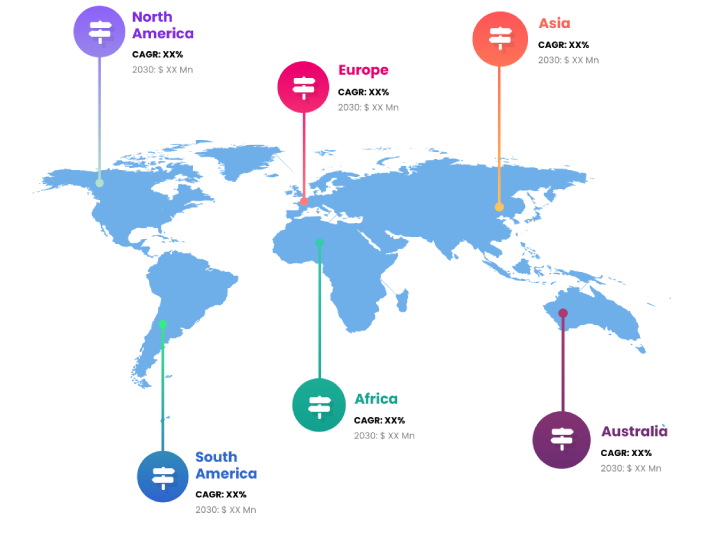Healthcare providers all around the world use a method called revenue cycle management (RCM) to keep tabs on patient payments from the time they first make contact with a facility all the way through to the point where they are settled. Revenue creation begins when a patient schedules an appointment and concludes when the healthcare provider receives payment in full. All of the administrative and clinical tasks that contribute to collecting, administering, and processing money for services rendered to patients are included in what the Healthcare Financial Management Association (HFMA) calls the revenue cycle. Some of the revenue cycle procedures that RCM solutions help healthcare workers manage and expedite include: medical coding and billing; patient insurance eligibility verification; electronic health records; clinical documentation; and claims and denials management. HIS, RIS, EHR, PACS, CPOE, VNA, mHealth, healthcare analytics, telemedicine, logistics administration, customer relationship management (CRM), fraud monitoring, and reimbursement administration are all part of the broader healthcare IT industry, of which revenue cycle management is often thought of as a subset.

Influential Elements
The growing number of patients and related rise in health insurance claims is one of the primary forces propelling the worldwide revenue cycle management industry. The growing prevalence of chronic diseases, the rising expectations of patients for excellent medical care, and the expanding availability of health insurance are largely to blame. The total number of medical coverage claims has increased due to the growing need for healthcare services. Therefore, in order to manage the ever-increasing volume of health insurance claims and maximise profits for healthcare providers, a full suite of revenue cycle management tools and services is required. The ability of hospitals and clinics to collect, analyse, and report patient data has also been greatly improved because to the introduction of electronic health records (EHRs). With the advent of EHR and EMR systems, healthcare facilities are seeking to improve the infrastructure of revenue cycle management solutions.
Market growth is anticipated as a result of factors such as rising healthcare industry need for workflow optimisation and the advent of cutting-edge synchronisation software for operational management systems. Favourable regulation changes from government organisations are a major factor propelling the market forward. Revenue cycle management products and services are increasingly being outsourced to developing nations, which is opening up lucrative new markets. Furthermore, the availability of a large contingent workforce in developing countries enables healthcare firms to reduce fixed costs and maximise earnings. As a result, the investment attraction of revenue cycle management firms is projected to increase as the market potential in developing countries grows considerably.
Factors That Hold It Back
However, limitations in IT infrastructure can be a significant challenge for the global revenue cycle management industry to grow in developing and less developed countries. Reliable internet access, data centre space, and software and hardware systems are all lacking, which slows down the deployment of revenue cycle management solutions. The market also faces resistance from those who are reluctant to give up on established revenue cycle management practises. The cost of upgrading to the most recent system is thus a major barrier to widespread use of cutting-edge technology. Furthermore, the adoption of new technology may be stymied due to a lack of standards and technical assistance. Therefore, it is expected that all of these limitations will slow revenue cycle management development over the forecast horizon.
The worldwide revenue cycle management market is split between software and services based on what they provide. With a projected 68.3% of total revenue, the services subsector is clearly in the driver's seat. This increase may be associated with the trend towards outsourcing these jobs to hospitals and other healthcare establishments. Many hospitals and clinics need personnel with certain skill sets and equipment in order to implement new revenue cycle management systems, driving up demand for outsourcing services. Patient management solutions, medical billing, medical coding, and many more are just some of the RCM services offered by businesses today. Key players are engaged in a number of strategic initiatives at the moment.
The global revenue cycle management market is divided into three distinct categories based on the type of delivery model used: web-based, cloud-based, and on-premise. The cloud-based sector is expected to grow at the fastest rate during the projection period. Low initial and ongoing expenses, unlimited data storage, instant data access from everywhere, and fewer instances of spam and other online risks are likely behind this sector's rapid expansion. Cloud-based distribution also offers users greater flexibility and lower costs. In addition to saving money on costly server upkeep, cloud-deployed solutions help healthcare organisations manage EHRs, patient portals, big data analytics, and mobile apps.
Report Coverage
Global Revenue Cycle Management research report categorizes the market for global based on various segments and regions, forecasts revenue growth, and analyzes trends in each submarket. Global Revenue Cycle Management report analyses the key growth drivers, opportunities, and challenges influencing the global market. Recent market developments and Revenue Cycle Management competitive strategies such as expansion, product launch and development, partnership, merger, and acquisition have been included to draw the competitive landscape in the market. The report strategically identifies and profiles the key Revenue Cycle Management market players and analyses their core competencies in each global market sub-segments.
| REPORT ATTRIBUTES | DETAILS |
|---|---|
| Study Period | 2017-2030 |
| Base Year | 2022 |
| Forecast Period | 2022-2030 |
| Historical Period | 2017-2021 |
| Unit | Value (USD Billion) |
| Key Companies Profiled | McKesson, Cerner, GE Healthcare, Dell EMC, Meditech, 3M, AdvantEdge Healthcare, CareCloud Corporation, Veradigm LLC, Oracle, Epic Systems Corporation, Optum Inc., R1 RCM, Inc., Change Healthcare, Cognizant, Experian Health, eClinicalWorks, SSI Group LLC |
| Segments Covered | • By Product |
| Customization Scope | Free report customization (equivalent to up to 3 analyst working days) with purchase. Addition or alteration to country, regional & segment scope |
Key Points Covered in the Report
- Market Revenue of Revenue Cycle Management Market from 2021 to 2030.
- Market Forecast for Revenue Cycle Management Market from 2021 to 2030.
- Regional Market Share and Revenue from 2021 to 2030.
- Country Market share within region from 2021 to 2030.
- Key Type and Application Revenue and forecast.
- Company Market Share Analysis, Revenue Cycle Management competitive scenario, ranking, and detailed company
profiles. - Market driver, restraints, and detailed COVID-19 impact on Revenue Cycle Management
Market
Competitive Environment:
The research provides an accurate study of the major organisations and companies operating in the global Revenue Cycle Management market, along with a comparative evaluation based on their product portfolios, corporate summaries, geographic reach, business plans, Revenue Cycle Management market shares in specific segments, and SWOT analyses. A detailed analysis of the firms' recent news and developments, such as product development, inventions, joint ventures, partnerships, mergers and acquisitions, strategic alliances, and other activities, is also included in the study. This makes it possible to assess the level of market competition as a whole.
List of Major Market Participants
McKesson, Cerner, GE Healthcare, Dell EMC, Meditech, 3M, AdvantEdge Healthcare, CareCloud Corporation, Veradigm LLC, Oracle, Epic Systems Corporation, Optum Inc., R1 RCM, Inc., Change Healthcare, Cognizant, Experian Health, eClinicalWorks, SSI Group LLC
Primary Target Market
- Market Players of Revenue Cycle Management
- Investors
- End-users
- Government Authorities
- Consulting And Research Firm
- Venture capitalists
- Third-party knowledge providers
- Value-Added Resellers (VARs)
Market Segment:
This study forecasts global, regional, and country revenue from 2019 to 2030. INFINITIVE DATA EXPERT has segmented the global Revenue Cycle Management market based on the below-mentioned segments:
Global Revenue Cycle Management Market, By Offering
Software
Services
Global Revenue Cycle Management market, By Delivery Mode
Web -based
Cloud-based
On-premise
Global Revenue Cycle Management Market, By End User
Hospitals
Diagnostic Laboratories
Physician Back Offices
Others
Global Revenue Cycle Management market, Regional Analysis
- Europe: Germany, Uk, France, Italy, Spain, Russia, Rest of Europe
- The Asia Pacific: China,Japan,India,South Korea,Australia,Rest of Asia Pacific
- South America: Brazil, Argentina, Rest of South America
- Middle East & Africa: UAE, Saudi Arabia, Qatar, South Africa, Rest of Middle East & Africa
You will get in-depth and extensive revenue cycle management market market research and competitor analysis for your business to help you develop more profound insights into the revenue cycle management market Market.
Through INFINITIVE Data Expert is a professional Market Research services, I will identify the revenue cycle management market market size, demand & opportunities, growth rate, and target audience with a comprehensive analysis of your competitors.



